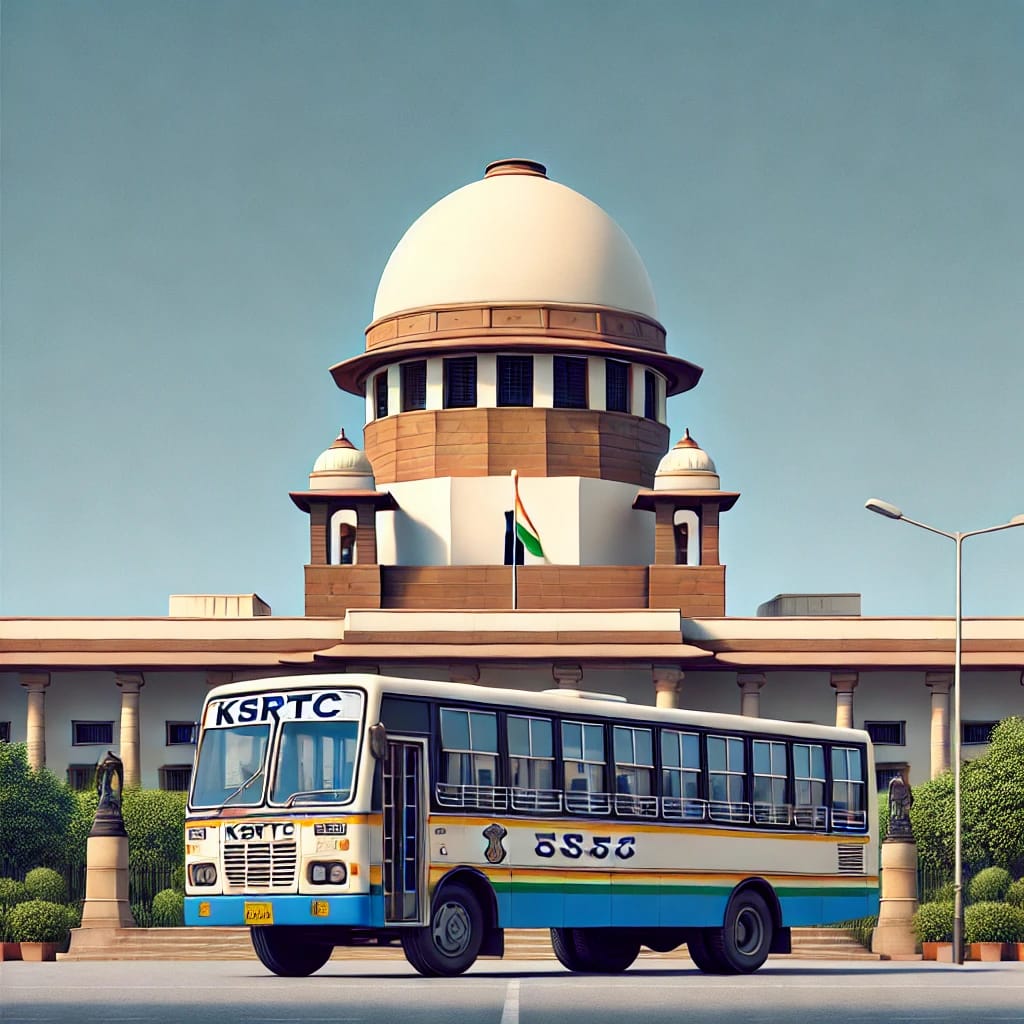Rakia Imran
On 8th February, 2025, a Division-Bench comprising Justices Vikram Nath and Prasanna B Varale upheld the 2003 Act, rejecting the Karnataka High Court’s decision that had declared it unconstitutional. In a pivotal ruling, the Supreme Court of India, while deciding M/S S.R.S. Travels by its Proprietor K.T. Rajashekar v. The Karnataka State Road Transport Corporation Workers & Ors., 2011, scrutinized the constitutional standing of the Karnataka Motor Vehicles Taxation and Certain Other Law (Amendment) Act, 2003, which had repealed the Karnataka Contract Carriages (Acquisition) Act, 1976 (KCCA). The principal contention was whether a state legislature, when repealing a law that had earlier received Presidential assent, was obligated to seek renewed approval from the President as per Article 254 of the Constitution.
The ruling clarified that when a legislative body has the authority to enact a law, it naturally retains the power to repeal it as well. Given that the 2003 Act was introduced as a policy-driven measure and did not contradict or override any judicial pronouncements, the Supreme Court held that there was no constitutional mandate to seek fresh Presidential approval for its implementation. The Karnataka High Court’s decision was challenged by the appellant, M/S S.R.S. Travels, on the grounds that the State Legislature had full constitutional authority to repeal the 1976 Act without obtaining fresh Presidential approval. The appellant asserted that legislative competence includes both the ability to enact and repeal laws, and since the repeal was aligned with policy changes rather than legal contradictions, requiring Presidential assent was unnecessary.
In response to the appeal, the respondents, KSRTC Workers, upheld the Karnataka High Court’s decision by asserting that the 2003 Act was unconstitutional due to the lack of Presidential assent. They reasoned that since the 1976 Act had been enacted with Presidential approval, its repeal should also have undergone the same process. According to the respondents, the repeal of the 1976 Act effectively nullified prior Supreme Court judgments that had upheld the KCCA and validated the state’s authority to regulate private transport services. They further contended that the 2003 Act, by assigning permitting powers to the STA Secretary, undermined the regulatory scheme established by the 1976 Act. This legislative change, they argued, conflicted with the Supreme Court’s precedents, making it an unconstitutional exercise of legislative power that justified the annulment of the 2003 Act.
Justice Vikram Nath that the 2003 repeal was a well-founded legislative action intended to enhance public transportation services and address deficiencies in the previous statute. The Supreme Court unequivocally dismissed the respondent’s claim that the repeal was unconstitutional due to the absence of Presidential approval. The Court reasoned that the repeal neither constituted an illegitimate negation of prior Supreme Court rulings nor did it surpass the legislative competence of the Karnataka Legislature. Additionally, it was observed that, since the repeal aligned with policy objectives and did not contradict any binding legal framework, there was no requirement for Presidential assent. Consequently, the Supreme Court declared that Section 3 of the Karnataka Motor Vehicles Taxation and Certain Other Law (Amendment) Act, 2003, was constitutional, rejecting the objections raised by KSRTC workers. This ruling reinforces the doctrine that a State Legislature, acting within its jurisdiction, retains the power to repeal existing laws without requiring renewed Presidential assent unless there is a constitutional impediment.
Case Name: M/S S.R.S. Travels v. The Karnataka State Road Transport Corporation Workers & Ors.
Citation: 27833-27834 of 2011
Bench: Justices Vikram Nath and Prasanna B Varale

